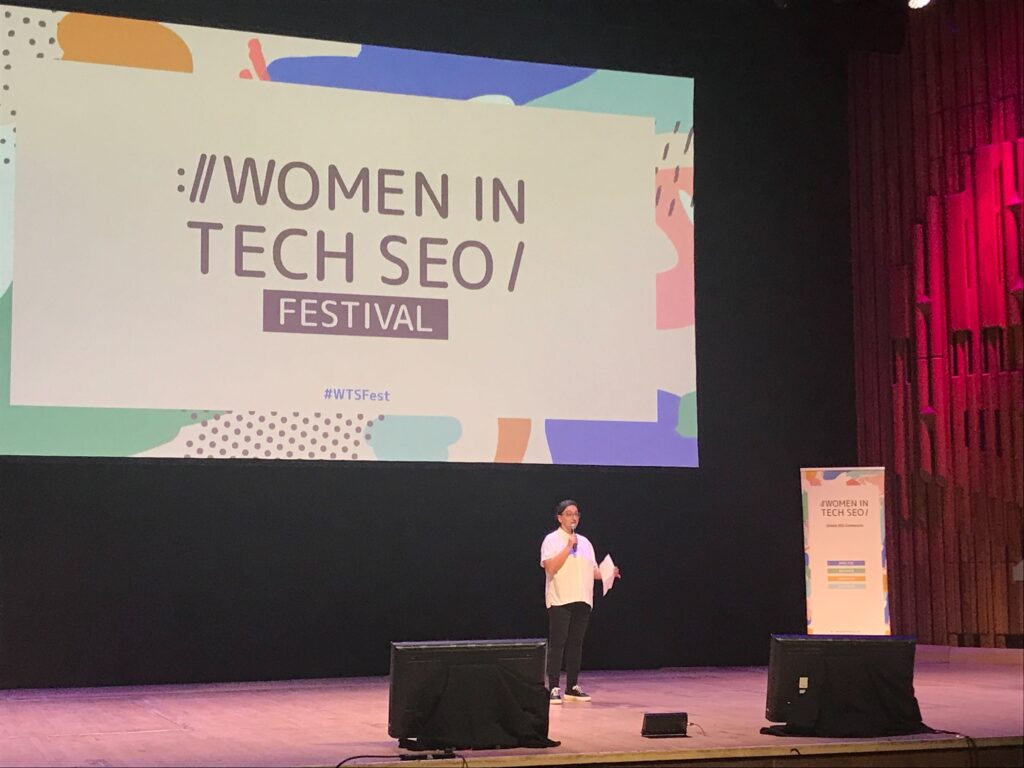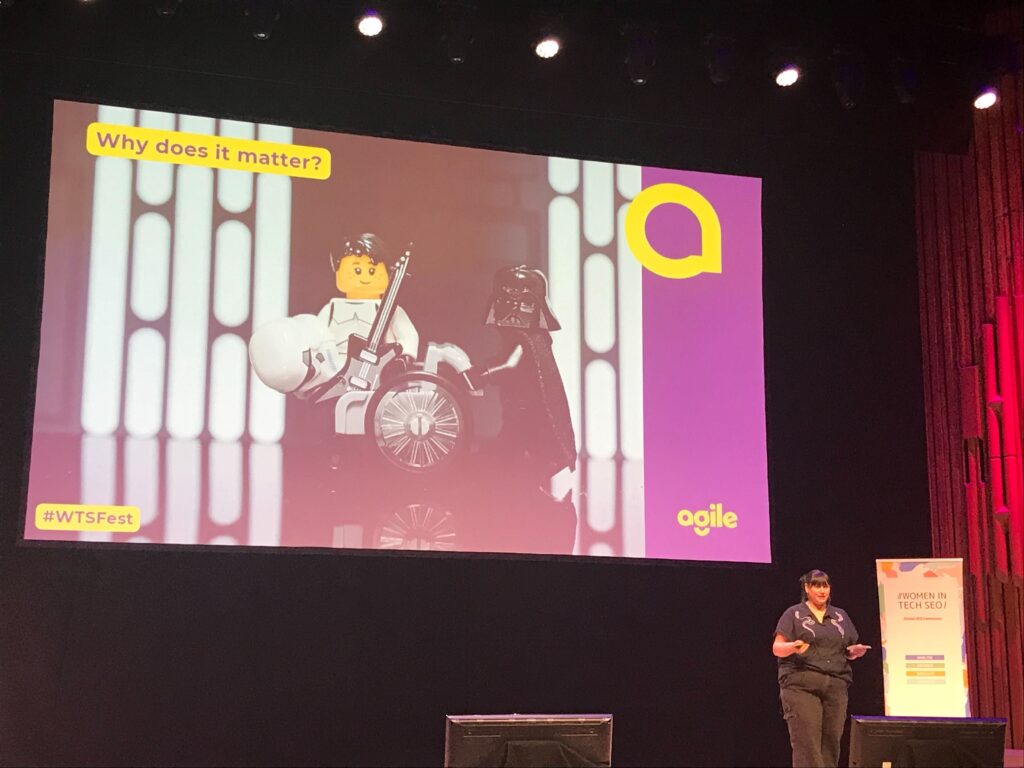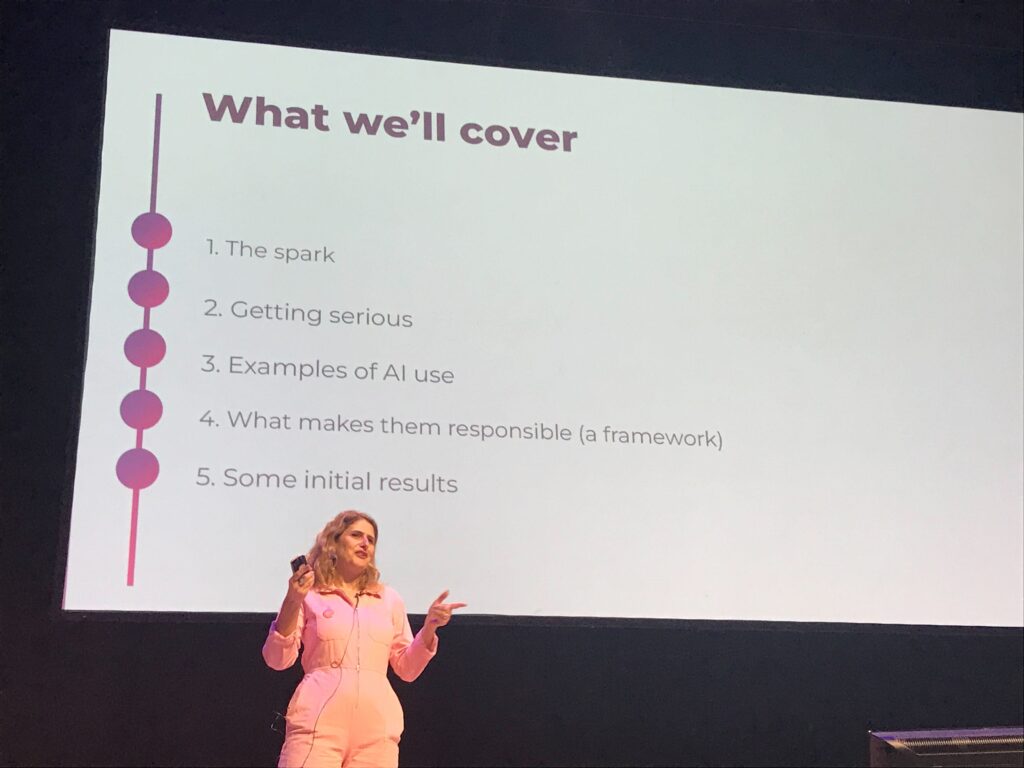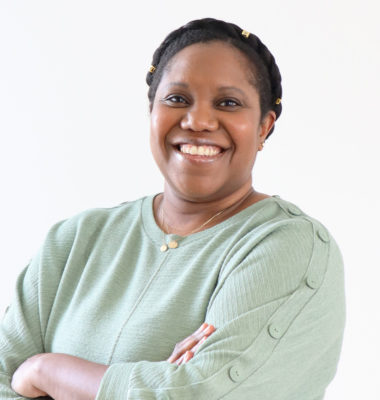The Women in Tech SEO conference, organized by the one and only Areej AbuAli, has become a key event in the SEO community.
It brings together industry experts to discuss crucial topics shaping the future of SEO, digital marketing and content marketing.
The 2025 London edition took place on February 19 and 20. This year, the event evolved from its original one day, one-track format to a two-day format that included a day of interactive workshops.
The conference was packed with 10 talks from 10 experts and the talks were grouped into the traditional four categories: Analyse, Advance, Innovate and Empower.
At Oncrawl, we were happy to be scholarship sponsors for this edition of the WTSFest.

Areej AbuAli at the WTSFest in London
Top takeaways from WTSFest London
I had the opportunity to learn and get inspired by some fabulous women in the industry during the event and instead of trying to make a selection of which presentations to highlight (they were all great, that would be too hard), I’ll instead highlight what I found to be the overall key takeaways.
The human element is still important regarding any SEO strategy
While AI and automation continue to take up more space in the SEO sphere, one point that continued to resurface across a number of talks was the fact that successful content and SEO strategies must remain human-centric.
This doesn’t strictly mean that the human touch is necessary when evaluating AI output or SEO automations; it’s also about recognizing that human considerations drive better business outcomes.
We saw this point explained very clearly in discussions about accessibility and inclusion in web design. As Lyssa-Fêe Crump mentioned in her presentation,
“There are over 1 billion people with disabilities.”
Ensuring your site accessible is absolutely an ethical imperative; nevertheless, it also represents a significant business opportunity.

Lyssa-Fêe Crump at the WTSFest in London
The human element also emerged in discussions about faceted navigation personalization and the importance of being able to effectively communicate when trying to secure stakeholder buy-in.
For example, Naomi Francis-Parker emphasized that customers are more likely to make a purchase on a site when the content is personalized to their needs. It requires a bit of effort, but ultimately it means you’re creating a site and an experience that resonates with your audience.
SEO shouldn’t be done in a silo; integration and collaboration drive better results
The days of managing your SEO in isolation are over. Multiple speakers highlighted how breaking down silos between different specialties and departments leads to better outcomes.
Sophie Fell detailed an interesting example in regards to how there is a common space in which SEO and PPC teams can collaborate. When these traditionally separate functions work together, they can concentrate their efforts on a common goal. This type of collaboration generally benefits both teams involved, the business’s bottom line, and, ultimately, the end user.
Similarly, Rebecca Yu explained that a successful website migration – often seen as a purely technical exercise – more often than not depends on cross-functional communication more than on technical expertise alone. The message was clear: we work better together.
We have to be responsible and accountable for how we choose to innovate
Finally, a last takeaway addressed the industry’s mature approach to innovation. This was particularly evident in Emina Demiri’s presentation about being able to scale quickly, but in a responsible manner.
Instead of focusing on how to scale AI use as quickly as possible, she emphasized the importance of developing frameworks for responsible AI implementation, even when working with limited budgets. This included considerations of environmental impact, transparency, and the crucial role of human oversight.

Emina Demiri at the WTSFest in London
Final thoughts
All of the presentations were very perceptive and gave us a well-rounded look at the industry.
The above takeaways paint a picture of an SEO industry that has matured beyond the idea of technical tips and tricks to gain a quick win. SEO success requires a balanced approach that considers human needs, encourages cross-functional collaboration, and innovates responsibly.
Once again, the Women in Tech SEO team did a great job organizing and hosting an insightful conference.
We’re happy to be part of the initiative and enjoy watching it grow. Next up, the WTSFest in Berlin!
Those are my standout points from the event, but it’s always great to hear from others about their experience. Feel free to share with us on social media.


